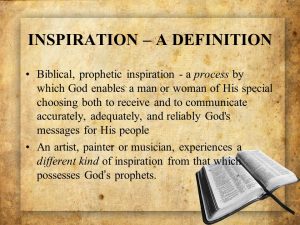
Shownotes
Wisdom-Trek / Creating a Legacy
Welcome to Day 1231 of our Wisdom-Trek, and thank you for joining me.
I am Guthrie Chamberlain, Your Guide to Wisdom
Mastering the Bible – Inspiration Was a Process – Worldview Wednesday

Wisdom – the final frontier to true knowledge. Welcome to Wisdom-Trek where our mission is to create a legacy of wisdom, to seek out discernment and insights, and to boldly grow where few have chosen to grow before.
Hello, my friend, I am Guthrie Chamberlain, your captain on our journey to increase Wisdom and Create a Living Legacy. Thank you for joining us today as we explore wisdom on our 2nd millennium of podcasts. This is Day 1231 of our trek, and it is Worldview Wednesday.
Creating a Biblical Worldview is important to have a proper perspective on today’s current events. To establish a Biblical Worldview, you must also have a proper understanding of God and His Word. Last week we began a new series on Mastering the Bible. Our focus for the next several months on Worldview Wednesday will be Mastering the Bible through a series of brief insights. These insights are extracted from a book of the same title from one of today’s most prominent Hebrew Scholars, Dr. Micheal S. Heiser. This book is a collection of insights designed to help you understand the Bible better. When we let the Bible be what it is, we can understand it as the original readers did, and as its writers did. Each week we will explore two insights.
Mastering the Bible – Inspiration Was a Process

Insight Three: Inspiration Was a Process, Not an Event
Dr. Heiser brings some very solid insights into the topic of Biblical inspiration. Because the Bible quite clearly calls itself inspired, which indicates “God-breathed” in 2 Timothy 3:16, we tend to think about inspiration as an otherworldly event. That’s a misconception. The Bible is a divine book, given what 2 Timothy 3:16 says, but it’s also a thoroughly human book. Let me read that that verse, “All Scripture is inspired by God and is useful to teach us what is true and to make us realize what is wrong in our lives. It corrects us when we are wrong and teaches us to do what is right.” Failing
to grasp its humanness of inspiration can lead to all sorts of problems in understanding it and can even cause doubt about its authenticity. Embracing the humanity of the Bible is enormously helpful for understanding what’s in the Bible and why it says the things it does.
For example, we have four Gospels. Three of them – Matthew, Mark, and Luke – overlap in content a lot of the time with respect to what they include about the life of Jesus. But they often have things in a different order. Dialogue isn’t always the same. Certain details of episodes in the life of Jesus might be in two accounts and missing in the third. And when it comes to the Gospel of John, 90 percent (literally) of what’s in that Gospel isn’t in the other three.
One thing for sure isn’t part of the explanation: the notion that the words dropped from heaven or were downloaded into the brains of the Gospel writers. The notion that God handed out every word just doesn’t work with the Gospels. The Bible never describes inspiration that way. It does describe very human acts. Writers record events and thoughts. They build arguments. They express themselves in poetry. They use sources. They create links between their work and other parts of Scripture.
Writing involves work and careful thought. Biblical books were not slapped together. The Bible bears the marks of human decision making on every page and in every paragraph. Biblical literature follows the conventions of the day for competent, professional writing. Authors are sensitive to genre, structure, literary devices, word choice, poetic parallelism, and narrative art. No part of any biblical book “just happened.”
God chose a wide range of people and providentially prepared them for the moment he would prompt them, either by his Spirit or by someone else’s influence, to write something for the posterity of God’s people. God put them in situations that would lead them to write the message God wanted to be preserved. He didn’t need to put them into a trance or control their hands as we do to little children who are learning their letters. They were his instruments, not his puppets.

Insight Four: Inspiration Was Not a Paranormal Experience
Christians believe the Bible is inspired. We intuitively presume that means that God was involved in producing Scripture. But how exactly did that happen?
In Dr. Heiser’s and even my own experience, explanations of inspiration can get pretty strange. Dr. Heiser regularly had students in Bible college think of inspiration as some sort of episode where the Holy Spirit took control of the human author. Even to the point where some pastors and Bible teachers talk about God controlling the hand, fingers, and even the mind of the writer. That sounds more like an episode of The X-Files or Fringe than biblical theology.
What does this mean? The prophet Isaiah wasn’t busy making breakfast one morning when he was suddenly cast by the Spirit of God into a mindless, catatonic state. The words of the book that bears his name weren’t downloaded into his brain. His body didn’t stiffen as though possessed, save for one arm, that unbeknownst to him was busy filling a scroll with words from God. Isaiah wouldn’t have later marveled at the result, eager to find out what he’d just written while zombified. This is the sort of portrayal one encounters in occult literature or descriptions of what psychics call automatic writing. The Bible describes nothing like this. Inspiration wasn’t a paranormal event.

We know inspiration didn’t work this way from the Bible itself. True, the Bible does say that its content is “inspired,” but that’s just a statement about its ultimate source. The Bible bears the marks of human thought, skill, and decision on every page.
According to Scripture, Scripture is both divine and human (2 Peter 1:16—21). The authors didn’t write independently of God’s influence and providence, but they did indeed write what we have in the Bible. The biblical writers, at times, tell us directly that they had a purpose or agenda for what they did. As an example, Apostle John when he said the purpose for which he wrote his book in John 20:30-31,“The disciples saw Jesus do many other miraculous signs in addition to the ones recorded in this book. But these are written so that you may continue to believe that Jesus is the Messiah, the Son of God, and that by believing in him, you will have life by the power of his name.” Also read 1 Corinthians [4:14] and 2 Corinthians [13:10]. Even when God commanded something to be written down, Scripture doesn’t describe the person commanded as losing control of his mind and becoming an unthinking robot (Exodus. [17:14]; Numbers [5:23]; Deuteronomy. [31:19], 30).
We, therefore, shouldn’t expect that God had to whisper the words of the Bible into the ear of the writer. The inspiration of Scripture was the culmination of a long process involving many dedicated hands. The biblical writers, named or not, were God’s instruments because he providentially prepared and used them in the task. God didn’t need mind control. They did the job, God guided the result, and we are the beneficiaries.
That will conclude our lesson on the second two insights from Dr. Heiser’s book Mastering the Bible. Next Worldview Wednesday, we will continue with two additional insights. I believe you will find each Worldview Wednesday an interesting topic to consider as we build our Biblical worldview.
Tomorrow we will continue with our 3-minute humor nugget that will provide you with a bit of cheer and help you to lighten up and live a rich and satisfying life. So encourage your friends and family to join us and then come along with us tomorrow for another day of our Wisdom-Trek, Creating a Legacy.

If you would like to listen to any of our past 1230 treks or read the Wisdom Journal, they are available at Wisdom-Trek.com. I encourage you to subscribe to Wisdom-Trek on your favorite podcast player so that each day’s trek will be downloaded automatically.
Thank you so much for allowing me to be your guide, mentor, and most of all, your friend as I serve you through the Wisdom-Trek podcast and journal.
As we take this trek together, let us always:
- Live Abundantly (Fully)
- Love Unconditionally
- Listen Intentionally
- Learn Continuously
- Lend to others Generously
- Lead with Integrity
- Leave a Living Legacy Each Day
I am Guthrie Chamberlain reminding you to Keep Moving Forward, Enjoy Your Journey, and Create a Great Day Everyday! See you tomorrow!